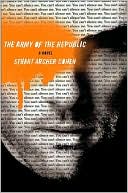 |
Army of the Republic, by Stuart Archer Cohen For the past two years I’ve been seriously thinking about what American working people might do if the government allows employers to destroy labor unions and cancel pension obligations. I’ve been entertaining fantasies of assassination teams, composed of unemployed and retired auto workers, picking off high-profile CEOs and high government officials. The world of Army of the Republic features unrestrained capitalism and a Bush-like corporate government busily going after the few freedoms remaining to the American people, opposed by groups of loosely-organized militants and civil dissenters, playing out in front of a public that cares only about its own immediate comfort, perfectly willing to live under a dictatorship so long as the government leaves them alone, with a Rush Limbaugh-like talk radio host and a Fox-like Channel America screaming out government propaganda 24/7. Narration shifts between three points of view: that of a militant, a civic organizer, and a corporate CEO. As the story progresses the three narrators become increasingly intertwined. They think about their actions, they waver in their commitments, they grow. Many books fascinate us, but how many both fascinate us and make us want to take to the streets? Not damn many. This is a brilliant and inspiring book. |
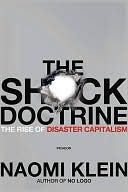 |
The Shock Doctrine: The Rise of Disaster Capitalism, by Naomi Klein Naomi Klein argues her premise well. Absolute free trade, the Milton Friedmanesque kind that destroys workers’ wages and benefits, massively increases unemployment, eliminates government programs, wrecks economies, and fattens the profits of big multinational corporations, can only be — and has only been — successfully imposed on countries in times of great crisis, in a dictatorial manner, enforced through intimidation, mass arrests, disappearances, torture, and killings. I don’t know about the rest of you, but I’m stocking up on guns and ammo! |
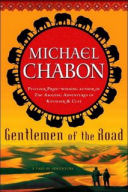 |
Gentlemen of the Road, by Michael Chabon A friend recently participated in the National Geographic’s Human Genomic Project. Through a DNA sample, he learned that his earliest ancestors migrated from Africa to the Middle East, became the Jews, migrated again to what is now Russia and Eastern Europe, eventually becoming what they are today, a widely dispersed tribe of modern Jews and Christians. I imagine I’m part of the same tribe, and plan to send in my DNA to find out for sure. Gentlemen of the Road is a rather spare snapshot of some of those ancestors at a brief moment in the 10th Century: it is about, in Michael Chabon’s own words, Jews with swords. A damn good story in the sense that the Book of Job is a damn good story. Gentlemen of the Road is a fleshed-out Old Testament tale. |
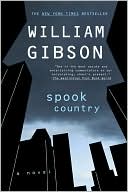 |
Spook Country, by William Gibson A friend said, “What, you haven’t read William Gibson?” I decided to fix that. Well-developed characters, good dialog, evocative urban scenes, an interesting plot, a very satisfying wrapping up of threads at the end. It appealed to my geeky side as well as my wannabe hipster side. An engrossing novel. |
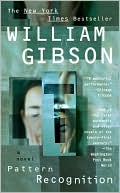 |
Pattern Recognition, by William Gibson I have become addicted to William Gibson. Like Spook Country (reviewed above), Pattern Recognition is a hipster’s delight. Gibson creates complex stories with interrelated events and characters. He’s a student of pop culture and his novels are right on top of current trends. Even more than complexity and hipness, I think, he likes happy endings. Some say he’s a sentimentalist, but I don’t think hipness has to be dark. These novels work for me. I want more! |
Leave a Reply